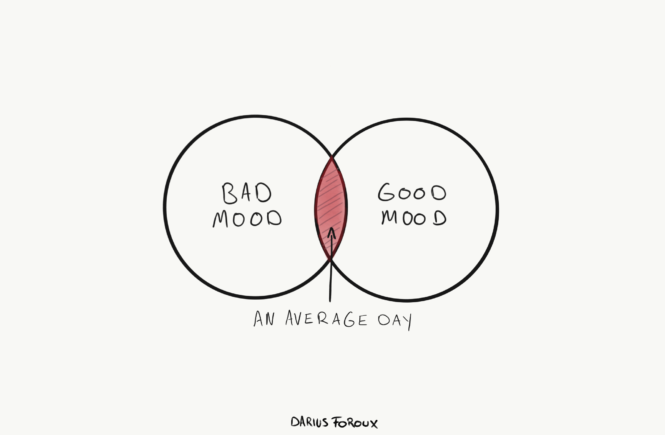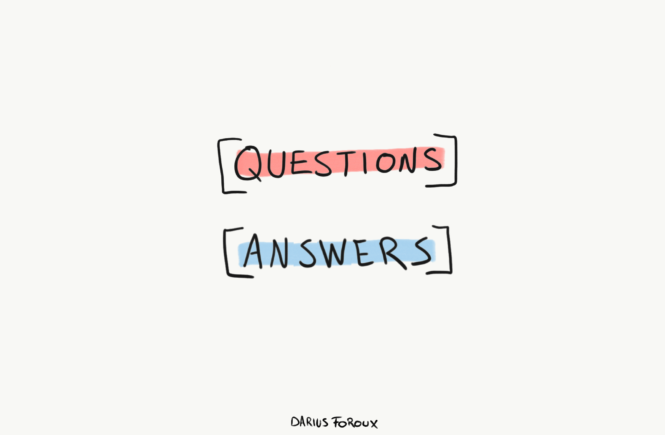In 1994, Michael Jordan, the greatest basketball player of all time, retired from the Chicago Bulls and tried to pursue a professional baseball career. Some say Michael was paying tribute to his father, who used to be a semi-pro baseball player and loved the game immensely.
From the start, everyone criticized Jordan’s baseball skills. His swings weren’t particularly good, and he was a slow runner in baseball terms.
The funny thing is that Michael Jordan’s first sport was baseball. And he was pretty good as a kid, but at 31 years old, he simply wasn’t good enough for the MLB. It makes me think; what if Jordan never pursued basketball?
There’s a quote that I thought about when I saw Jordan’s baseball adventure (there’s an excellent ESPN doc called ‘Jordan Rides the Bus’ about this). The quote is attributed to Einstein:
“Everybody is a genius. But if you judge a fish by its ability to climb a tree, it will live its whole life believing that it is stupid.”
It hasn’t been verified if Einstein really said that. But it’s so true regardless of who said it. If you’re feeling bad about yourself in life or are low on self-esteem, just remember that Michael Jordan, the GOAT (greatest of all time), would’ve lived his life believing he was just a mediocre athlete if he did not pursue basketball.
What Is Self-Esteem?
Psychology defines it as an individual’s overall sense of self-worth or personal value. It’s how much we appreciate and like ourselves.
Many factors affect our self-esteem. Things like genetics, childhood experiences, and age, are out of our control. But other factors like our stamina, strength, thoughts, and personal circumstances can be managed.
Self-esteem is not some permanent state of mind, though. It changes over time. As the Michael Jordan story shows, self-esteem largely depends on the current situation we’re in. What you’re currently going through or what happened to you in the past doesn’t determine how you will feel tomorrow.
Self-Esteem In Daily Life
So what does that look like in daily life? Well, it’s difficult to keep healthy relationships, excel at work, cope well with stressful situations, and even be happy if you lack a sense of self-worth. Here are two situations that show how self-esteem impacts our daily lives.
Self-talk
If you constantly talk yourself out of everything you want to do, you end up doing nothing. I recently started teaching an online course about digital entrepreneurship. And nearly every person goes through something like this:
“I had this great idea and got excited about it. Then, I looked it up and saw it already exists. I don’t know how to come up with something unique.”
And then, they go on blaming themselves. Another thing I often hear is, “I want to start a blog but there are already millions of them.” When I started, it was the same thing. I could have said, “Well, there are already a million productivity blogs so I’m not going to start one.”
Let’s be honest. These are all excuses. We all come up with “reasons” why we shouldn’t start a business, write a book, talk to the person you fancy, move to a different country, start losing weight, etc.
Working with others
Without confidence, we can’t do things like committing to something, sticking to our decisions, and taking calculated risks. You can’t work well if you keep second-guessing your own actions.
No one likes to work with people who are unsure about everything. It’s so frustrating. But we fail to look in the mirror.
When you’re in a meeting, and a client or boss attacks you or expresses concerns, will you tell them the truth, or will you cop out and give an excuse?
Introducing The William James Formula
So, how do you improve your self-esteem? In 1890, William James, “The Father of American Psychology,” published The Principles of Psychology. I’ve been a fan of James’ work for many years. My book, Think Straight, is primarily based on his philosophy of Pragmatism.
William James says that self-worth is based on two elements: Our actual achievements, and our aspirations. He demonstrated this idea in an equation:
Self-esteem = success/pretensions
Our self-esteem is dictated by how well we’re doing in life (success) divided by how good we feel about ourselves (pretensions). Good self-esteem is the result of having more success than pretensions.
How To Use This Formula
What I like about this formula is that it’s practical, realistic, and honest. It’s not about positive affirmations or saying stuff like, “you’re a badass” without results.
But we can’t have success with everything we do. As William James said, a person has to “pick out the one on which to stake his salvation.”
Michael Jordan could’ve been an okay baseball player. But he could only be exceptional at basketball. Basketball is his “salvation.” If you want to become great at something, you need to know what you’re good at and what you consider important.
If you feel like you can’t do anything, then you’re likely doing the wrong thing.
Too many people do stuff that don’t correspond to their strengths, and this is where they fail.
As we succeed more in life, our self-esteem grows. So, ask yourself: Are you doing something you can be great at?
Sometimes, we feel stuck. Maybe you’re working a dead-end job, or something you enjoy but having little success with, and you don’t know what to do. That’s okay. I go through those moments as well.
The most important thing is that we focus on our strengths, skills, and areas we can achieve something meaningful, just like Jordan and basketball—not baseball. Your self-esteem will grow as a result of that.




